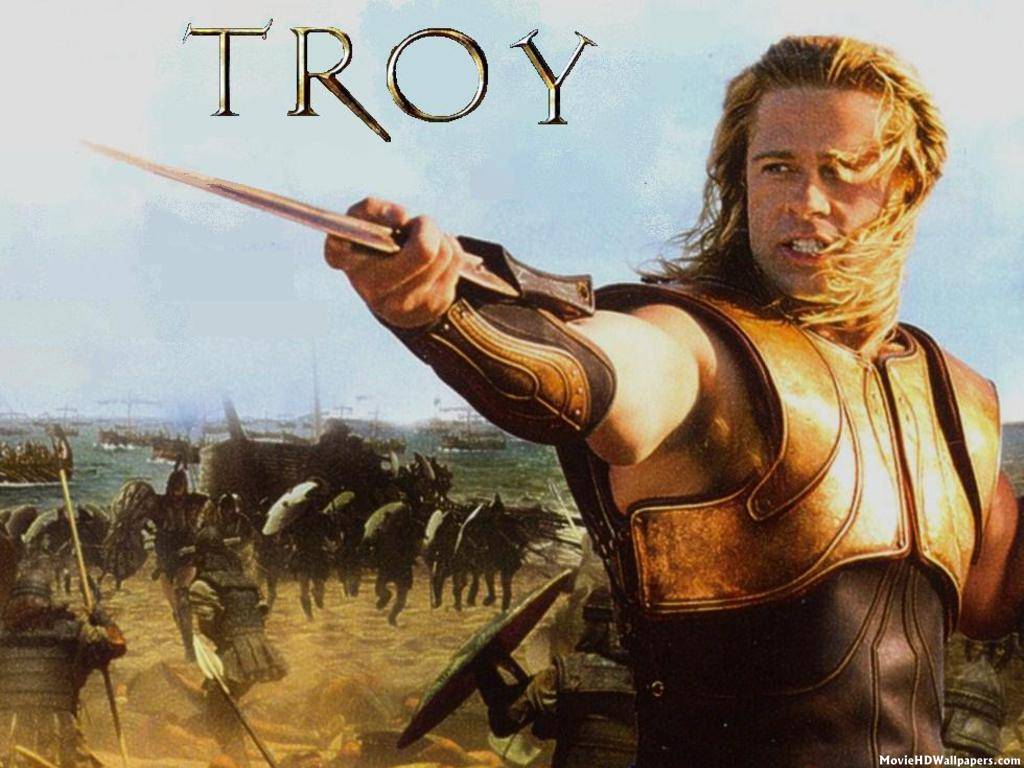Directed by: Wolfgang Petersen
Starring: Brad Pitt, Diane Kruger, Eric Bana, Orlando Bloom, Rose Byrne, Sean Bean, Peter O’Toole, Saffron Burrows, Brian Cox, Brendan Gleeson
In Ancient Greece, a forbidden fraternization between a passionate Prince and a wedded Queen ignites a flame that will later burn down one of history’s greatest cities. Paris, Prince of Troy, elopes with the beautiful Helen of Sparta, an act that enrages the powerful Menelaus, and the forces that he commands.
Paris and Helen’s romance is a legendary paradigm showing how love can – quite literally – burn a city to cinders. The way the film gives the audience a brief view of how the choice of love appears so simple and enticing through Paris’ eyes just before exhibiting the severity of his foolishness’ repercussions is a clear delineation of love’s many faces. Moreover, the movie shows the different planes on which men’s loyalties lie. Hector, gallant and dutiful, fights for his country; Paris, passionate and daring, fights for love; and Achilles, confident and insolent, fights for long-lived glory. The film accentuates how these loyalties determine the decisions that each character chooses to make, thus placing in line all ensuing happenings.
I personally admire the screenwriter’s adherence to the cultural norms of the setting. Several lines and scenes quite accurately present the objectification of women (e.g. Briseis as a war prize) and the imploration of godly assistance especially in decision-making (e.g. King Priam’s refusal to give permission to attack the Greek camp due to the priests’ intervention) as customs in that era.
Moreover, the cinematography is amply impressive. I daresay that the fire and the gore appear convincing enough to solicit several gasps from my absorbed self.
Even with these commendable points, though, the director misses many opportunities to delve deeper into other characters’ personalities, at times rendering them dull and predictable. This shows a blatant straying from the original Iliad, where Hector’s tendency to be overconfident in his strategies is a visible character flaw and Agamemnon’s appreciation for subtlety is highlighted. The director fails to portray the people as multi-faceted individuals in his effort to focus the spotlight on Achilles’ individuality. Over all, I find the movie excellent as a standalone work, but unsatisfactory as an adaptation of its written basis.
The film is highly recommendable to adolescents, since it holds quite an assortment of sensitive content that may be too graphic for children under thirteen. In line with this, teenagers are likely to bear interest in Greek history and literature, especially when it is presented through creative media. The movie’s storyboard, direction, and consistent displays of explicit substance are more than adequate to ensure the maintenance of the teenage audience’s attention. With its daring and informative attributes, this film might well rouse the literary enthusiasts within the world’s youth. Wouldn’t we all want to see more past-aware future-builders?



Recent Comments